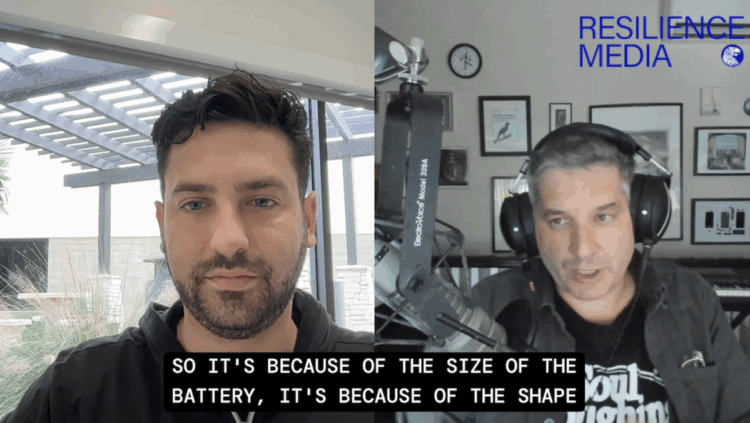Defense has a battery problem that is not about chemistry. It is about integration.
Charlie Welch, CEO and co founder of Proper Voltage, described it in plain terms. At Northrop he was tasked with getting new chemistries into fielded systems, across air, sea, and land. The technology existed. Sodium ion, lithium titanate, niobium and other cells with better safety, faster charge, or longer life. What stopped them was what he calls the integration paradox.
Proper Voltage is trying to break that stalemate by treating the battery like an operating system. The company builds a hardware and software layer, a voltage command unit, that makes voltage programmable. A pack built from sodium ion or lithium titanate cells can present the exact profile that a legacy system expects. Same physical format, same pins, same electrical behavior. From the point of view of a missile, a 6T in a vehicle, or a soldier radio, it is a drop in replacement. Under the hood, the chemistry can change without forcing a redesign of the rest of the stack.
That matters in defense because switching cost is high. Open a certified missile. Touch the power system in an aircraft. Change out fleets of 6T vehicle batteries or small tactical universal batteries. Each move creates engineering work, test time, and program risk. If a new pack can slot into existing housings and wiring while delivering higher power, faster charge, and longer life, the decision calculus changes. Welch cited a humanoid robotics project that moved to lithium titanate and cut charge time from three hours to about six and a half minutes while quadrupling peak power. Defense platforms want the same kind of step change without the redesign bill.
There is also a supply chain angle. Chemistries like sodium ion align better with domestic material sources than traditional lithium ion. If Proper Voltage can make those cells behave like familiar packs to the platform, the Department of Defense gets a path toward more resilient energy storage without forcing every program office to become a battery integration shop. The company is already seeing interest in backup power for telecom and data centers, but its roadmap clearly includes 6T, drones, and soldier wearables.
Batteries will not stop being a constraint for defense systems. Demands for more range, more sensors, and directed energy will keep pulling on the power budget. The question is whether the Pentagon will stay locked to one aging chemistry at a time, or whether it will adopt a layer that lets programs plug in new chemistries as they mature. Proper Voltage is betting the future belongs to the second camp, where power upgrades look more like line replaceable units than full platform rewrites.












